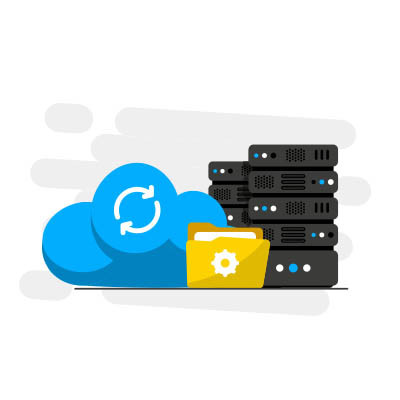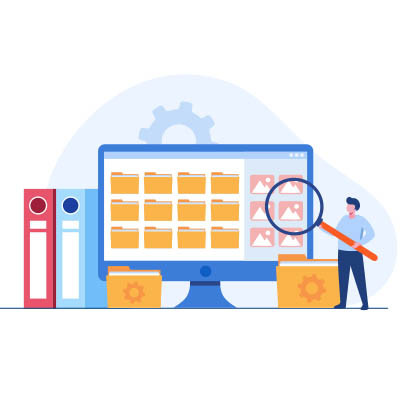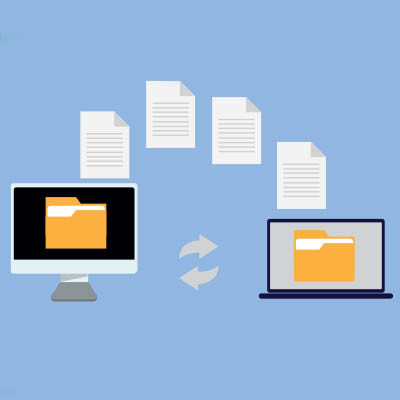Master Solutions Blog
Your business needs to consider business continuity if it wants to outlast the competition, and to do so, you need a data backup plan. Let’s look at some steps you can take today to protect your small business from potentially disastrous situations.
While social media has given us the capability to communicate beyond anything we’ve seen since the popularization of the Internet itself, this isn’t all a good thing. These platforms have made it easier for people to scam others, after all, making it necessary for everyone to take their personal cybersecurity and that of their company even more seriously.
Let’s talk about how these scams commonly work.
If the fact that you can enable Windows to save a list of your most often-used lines of text is news to you, I offer you my sympathies. You’ve missed a lot of potential productivity in the years since Microsoft added clipboard history functionality.
Let’s talk about how you can take advantage of clipboard history, starting with how to enable it.
Google Chrome takes the idea of a bookmark feature further than most other browsers. Instead of simply saving certain web pages for repeated viewing, Google Saved (a feature previously known as Google Collections) gives you a place to keep track of pages you want to return to later. But it’s more than just a simple bookmark; let’s take a closer look at Google Saved and how it works.
Managing your organization’s data is more than just another thing that you have to gloss over in your attempt at running your business. The simple truth is that your data is one of your business’ most valuable assets. There are several parts to every organization’s data management strategy, and today we will go through three of the most crucial: Storage, sharing, and security.
People interact with more organizations and companies online today than ever before. Many of these organizations collect personal information to help them improve their operations or to build an outside revenue stream. These business-first initiatives can put individual data at risk. Today, we’ll discuss what you need to know about data privacy.
Businesses need tools to help their employees collaborate, and thankfully, there has never been a better time to find the ideal solution that works for your specific needs. Since so many individuals work remotely these days, developers have prioritized collaboration, and all businesses reap the benefits of this trend. One of the keys to effective collaboration is file sharing; nowadays, it’s never been easier to do it easily and efficiently.
Since mobile technology infiltrated the mainstream office, businesses have embraced it as a valuable communication tool. That said, mobile devices are also keys allowing hackers and other potential thieves access to your most inner sanctums. Today, we want to go over some of the options you have for mobile device management and why it’s such an important concept for your business.
Data privacy is one of those issues that people find more serious the more they know about it. Most people don’t think much about it because they figure they are just one person and don’t move the needle for people looking to collect data. They couldn’t be more wrong. This week we’ll discuss individual data privacy, considerations individuals should have, and what to do to keep your data safe.
If you are a frequent reader of this blog, you’ve seen articles about blockchain before. This week we thought we’d go a different direction and take a look at the question of whether or not cryptocurrency, a construct made possible by blockchain technology, should be made taxable by state, federal, and international lawmakers. Let’s take a look at blockchain, its role in cryptocurrency, and whether or not taxation is on the agenda down the road.
If you're not paying for a product, the saying goes, you are the product.
While the Internet offers immense benefits, it also poses risks—especially concerning data privacy. Websites and social media platforms collect user data, tracking online activity to sell to advertisers or, more recently, to train AI systems.
In June, Chicken Soup for the Soul Entertainment—publisher of the eponymous Chicken Soup for the Soul book series—officially filed for Chapter 7 and then Chapter 11 bankruptcy, spurring the liquidation of many of its assets. Many may not realize that these assets include Redbox, the movie rental service, with its 24,000 distinctive scarlet kiosks.
What we’re concerned about, however, is what will become of these kiosks and, critically, the data they contain.
No matter what kind of business you work, having a repository of files that is organized and easy to navigate is a huge benefit. Like anything else that has a lot of traction, it is often difficult to keep organized in a manner that is best for your business. Let’s take a look at some ways that you can do just that.
Many people still underestimate the importance of cybersecurity and data privacy, putting themselves and others at risk. Most individuals are accustomed to sharing personal information online, whether through social media, e-commerce platforms, or various digital services. However, this lack of caution can lead to serious security breaches, identity theft, and even financial fraud. When people fail to take basic security measures, such as using strong passwords or enabling two-factor authentication, they create vulnerabilities that malicious actors can exploit. These weaknesses don’t just impact them personally but also expose organizations and communities to cyberattacks.
File efficiency is not something that is talked about very often as a key component to running a successful business, but it certainly is. Keeping an organized digital environment saves a lot of time and keeps projects and services working efficiently. Let’s take a look at why file efficiency is important and how to achieve it.
File sharing is a significant part of communication today. Whether trying to send a meme to your friends or sharing a video that won’t send, it can be frustrating when sharing your file doesn’t work. In the business world, though, ineffective file sharing can be more than just an inconvenience—it can lead to costly miscommunication. Let’s explore two methods seen in small business file sharing and how they benefit your organization.
If the Internet has made one thing in popular culture abundantly clear, nostalgia is a potent force. It makes us look back on our formative years to experiences that shaped who we are today. One such example is music, but what would you say if we told you that this music could disappear forever?
Collaboration is essential for modern business functionality, which often means that your team members will need to share files of all sizes. The trouble is that larger files have historically been a pain to share.
Fortunately, thanks to technology, there are now simple ways to share larger files with your team members. Let’s review them together.
Handling time calculations in a spreadsheet can often feel frustrating—especially when you’re just trying to add them up. Luckily, both Microsoft Excel and Google Sheets have built-in functions specifically designed for this purpose, making the process more manageable.
Here’s a quick guide to help you get started, no matter which spreadsheet program you use.
We all share a lot of data. There’s everything shared for professional purposes, of course, but there’s also all the casual things that we send back and forth—chats, requests to have people to pick up things on the way home, and (naturally) memes and pet pictures.
Most of this is sent off without a thought. However, let’s take a moment to think about it for a moment… is there an impact to all this data being sent around?




















